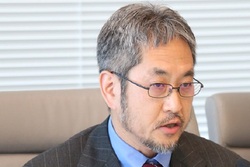Assassination of Civilians on Soil of A Sovereign State Instance of High-Risk Brinkmanship


Senior physicist Mohsen Fakhrizadeh was assassinated on Friday in a multi-pronged attack involving at least one explosion and small fire by a number of assailants in Absard city of Damavand County, Tehran Province.
Speaking to IQNA, Yasuyuki Matsunaga, a Tokyo University of Foreign Studies professor, described the assassination, “if a foreign power were indeed involved in” it, as an instance of high-risk brinkmanship with unknown consequences.
Following is the text of the interview:
IQNA: What effects will Friday’s assassination of an Iranian nuclear scientist have on US-Iranian relations?
Matsunaga: It is too early to tell. Among other things, it will depend on how many countries will come out and condemn the seeming assassination. If a foreign power were indeed involved in the execution of the plot, as widely suspected it was, it would not only be a flagrant violation of international law but an instance of high-risk brinkmanship with unknown consequences. It will be an obligation for all the sovereign states to come out and condemn an attack on a civilian’s life on the soil of a sovereign state if indeed another state were involved in its execution.
IQNA: Do you think this assassination is in line with the policy of maximum pressure on Iran or an action with the support of some governments in the Middle East region that are dissatisfied with the possible improvement of Iran-US relations?
Matsunaga: It looks more like a last-minute effort to sabotage a future development than a calculated execution of a well-planned policy. Although I am not assuming that the US Government had a hand in this, by looking at the history and future prospects of the US-Iran relations, it simply appears that the outgoing US administration is working to sow as many seeds of discord as possible so as to prevent a possible improvement of the US-Iran relations.
IQNA: Some Iranian officials have mentioned Israel’s role in the assassination. Given the history of similar actions by Israel, how likely can this be?
Matsunaga: We are unlikely to find out who were really behind the operation. But if a state outside Iran were involved, there is only one obvious candidate. That is, there is only one country in the region that has a track record of being behind a series of politically-motivated, targeted assassinations of key individuals. In this particular case, the likelihood of that country’s involvement is clearly very high.
IQNA: Some experts believe that Trump’s policy in his last days in the White House is to make it difficult to reduce tensions between Iran and the United States. What do you think about this?
Matsunaga: It is not only the Trump White House. There are hardliners in both the United States and Iran who are equally opposed to an improvement of the bilateral relations. Surely, the Trump Administration has been extreme in planning and executing its anti-Iran “maximum pressure” policy. But various kinds of anti-Iran hardline positions are clearly entrenched within the Washington policy circles. So are in Tehran. Therefore, a window of opportunity is not very wide for those policymakers in both countries who aspire for the resumption of improved relations. In term of time duration, it may also turn out to be a very brief window, given that the second term of the Rouhani Government is coming to an end and the time for the next Iranian presidential election is coming soon.
IQNA: Since the victory of Joe Biden in the US presidential election, we have witnessed comments about the improvement of Iran-US relations. How likely do you think it is for the United States to return to a nuclear deal with Iran?
Matsunaga: The incoming Biden Administration will surely try to rejoin several international agreements that the Trump Administration has left. Among the top of the list are the Paris climate accord and the Iran nuclear deal (or JCPOA). Therefore, it is likely that the Biden Administration will make some move toward coming back to the terms of the UN Security Council Resolution 2231 in its initial few months after coming to power and suspending the unilateral US sanctions against Iran which the Trump Administration had reimposed. However, even if this happens, not all the sanctions that the Trump Administration imposed on Iran will be removed. It will be difficult for the Biden Administration to completely restore the status that we saw at the end of the Obama Administration. Some of the measures will likely remain mostly due to the US domestic political reasons.
IQNA: Washington and Riyadh had very warm relations during Trump’s presidency. Where do you think US relations with Saudi Arabia will go during Biden’s presidency?
Matsunaga: The Biden Administration is likely to attempt to reboot the bilateral relations between the US and Saudi Arabia to some extent. However, it is again highly likely that much of the things that have been introduced during the Trump Administration will remain, from defense-related commercial contracts to various kinds of intelligence-related cooperation. The relations between the two countries involve many different players and entrenched interests. In other words, the room for maneuver for the Biden Administration in this regard is not so wide either.
Interview by Mohammad Hassan Goodarzi



